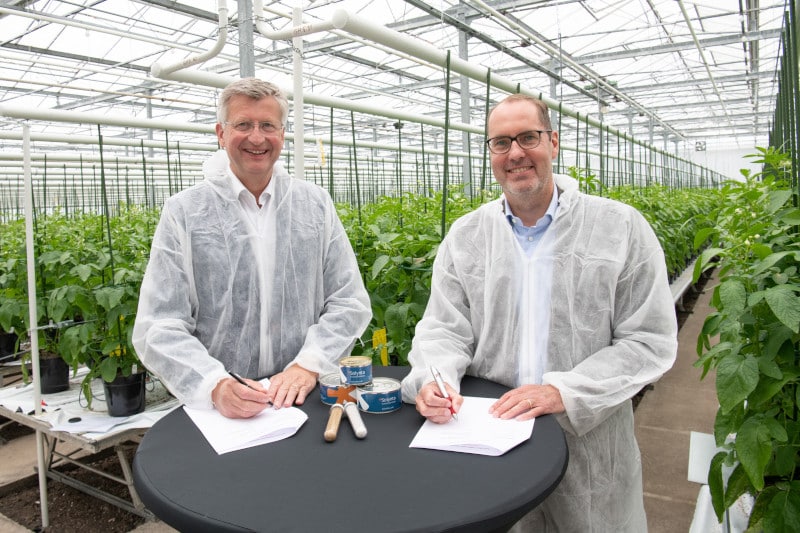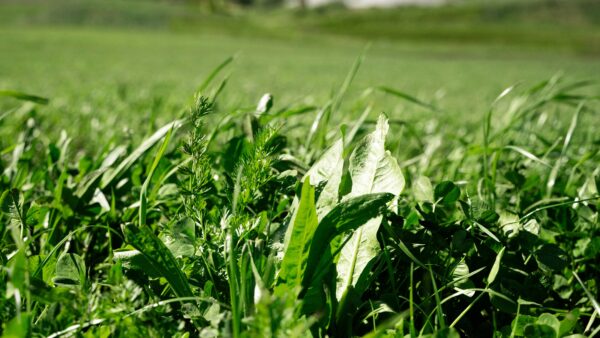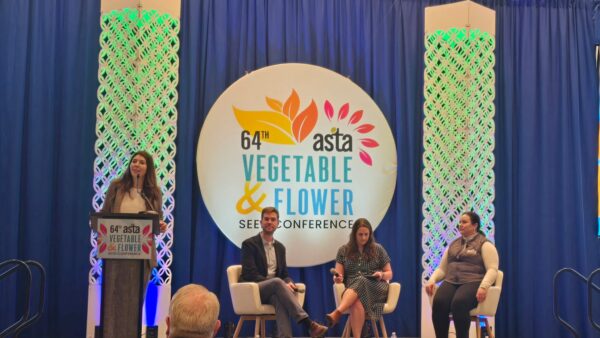INDUSTRY NEWS
A joint study by Exeter University, Rothamsted Research and Bayer has discovered enzymes in honey bees and bumble bees that determine how sensitive they are to different neonicotinoid insecticides. As in other organisms, toxins in bees can be broken down by enzymes called cytochrome P450s. The researchers carried out the most comprehensive analysis of bee P450 detoxification enzymes ever conducted. The study identified one subfamily of these enzymes in bees – CYP9Q – and found it was responsible for the rapid breakdown of certain neonicotinoids, such as thiacloprid, making them virtually non-toxic to bees. Bayer is confident that this knowledge will enable the company to design further bee-friendly insecticides in an even more targeted way, using relatively simple methods (in vitro) at an early stage of a product’s development.
Scientists at the University of Missouri map additional soybean genomes, which could help breeders fight diseases and other challenges in the crop. Approximately 340 million metric tons of soybeans are produced globally each year, with the market for soybeans worth $40 billion in the U.S. alone. Having a map of soybean genes is key for breeders, who work to develop varieties that farmers can use to help battle diseases and other environmental factors. For nearly a decade, only one soybean cultivar – “Williams 82” – had been sequenced, but MU scientists led by Henry Nguyen now have succeeded in mapping two more, giving breeders access to a broader array of soybean genes. The purpose of this sequencing project, “Better Soybean, Better Life,” is to assist molecular breeding and genome editing in order to enhance the productivity, biotic and abiotic stress tolerance, and nutritional quality of soybeans around the world. Having several reference genomes will allow breeders to develop and deliver new varieties more quickly and efficiently.
Kansas State University (K-State) researchers have discovered how weeds develop resistance to the popular herbicide glyphosate, a finding that could have broad future implications in agriculture and many other industries. Their work is detailed in an article that appears in the March 12 edition of the Proceedings of the National Academy of Sciences (PNAS) and considered to be one of the most-cited journals for scientific research in the world. According to its website, PNAS receives more than 21 million hits per month. Palmer amaranth and common waterhemp are the two troublesome pigweeds in Kansas agricultural fields, as well as other parts of the United States. Glyphosate – the key ingredient in the popular Roundup brand – is the herbicide that is widely used for controlling many weeds. But Jugulam notes that glyphosate resistance is becoming more prevalent in many states.
The Irish Potato Federation– with the support of the Department of Agriculture, Food and the Marine, Bord Bia, Failte Ireland and Teagasc – has won its bid to host the World Potato Congress (WPC) in 2021 in Dublin. It is envisaged that 1,000 delegates from developing and developed countries across the globe – including: growers; researchers; producers; traders; processors; and manufacturers – will attend the congress. The Irish Potato Federation has also secured the simultaneous hosting of the Europatat Congress – the annual congress of the European association of the potato trade.
PEOPLE NEWS
Professor Melanie Welham has been selected to be the Executive Chair of the Biotechnology and Biological Sciences Research Council (BBSRC) when UK Research and Innovation (UKRI) comes into being in April 2018. Professor Melanie Welham is currently interim Chief Executive of BBSRC having previously served as Executive Director, Science for BBSRC. Prior to this, Professor Welham worked at the University of Bath as Professor of Molecular Signalling and was the first woman to be appointed a professor in her department. Melanie is a leading researcher in molecular signalling and stem cell science.
Phytelligence, an agricultural biotechnology company, adds Peter Viss to its team as vice president of global sales for nuts, hops and new crops. In this role, Viss will lead the company’s efforts to provide new and existing growers with premium planting stock in these segments. Viss will work with Phytelligence’s customer service, accounting and marketing teams to ensure growers have access to the highest quality nut trees, hop plants and new product lines. Overseeing these segments, Viss will also work to educate growers on the economic benefits associated with planting Phytelligence’s true-to-type, virus-free plants and to respond to growers’ need for information on best agronomic practices.
After 44 years in the grass seed industry, Steve Tubbs (66) of Turf Merchants Inc. (TMI) is retiring as president. Based in Tangent, Oregon, TMI is a developer, producer and marketer of turf grass seed for the United States, North America and more than 20 other countries.
BUSINESS NEWS
CIS Semillas and Gro Alliance enter a joint venture to offer seed nursery services in Chile. CIS Alliance combines the expertise of CIS Semillas and Gro Alliance to create a leader in contract nursery solutions for row crops, cereals, oilseeds and vegetables. CIS Alliance’s mission is to help enable the creation of the next generation of hybrids and varieties that produce more output using fewer resources on less land. Its team of experienced breeders and technicians provide unique solutions and industry-leading communication to support some of the world’s most advanced breeding programs.
Monsanto Company and Pairwise Plants, an agricultural startup, have announced a collaboration to advance agriculture research and development by leveraging gene-editing technology. Under the agreement, Pairwise will work in corn, soybeans, wheat, cotton and canola crops exclusively with Monsanto. The companies bring unparalleled expertise and complementary intellectual property (IP) to a strategic alliance expected to drive new and needed solutions to help farmers produce better harvests, protect crops from evolving threats, and conserve resources in the face of mounting environmental challenges. Under the companies’ collaboration and licensing agreement, Monsanto would contribute $100 million to access and develop Pairwise IP in row crop applications, including an option to commercialize products resulting from the research collaboration.











